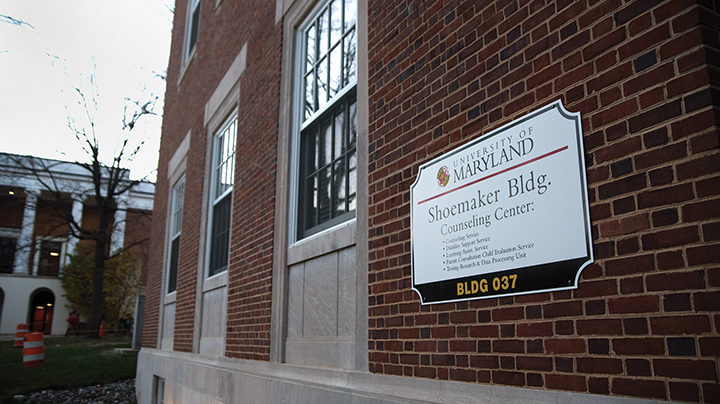In response to many undocumented immigrants’ concerns about their futures under the Trump administration, some University of Maryland students have been advocating for increased mental health services tailored toward DACA students and children of immigrants.
In addition to stress from academic work, students protected under Deferred Action for Childhood Arrivals — a federal program allowing immigrants who came to the country as children to stay in the U.S. in two-year blocks — face additional stressors other students may not experience.
DACA students and children of immigrants may worry about their deportation and that of their family members, their safety on and off of the campus and the “emotional strain of seeing the news and living in an uncertain political climate,” said Maria Luz Berbery, a Counseling Center staff psychologist.
This university had 113 DACA students as of fall 2016, as well as 20 students covered under Maryland’s DREAM Act, a law that grants in-state tuition to undocumented students.
President Trump has promised to crack down on immigrants entering the country illegally and build a wall along the U.S.-Mexico border. While he said he would prioritize deporting immigrants with criminal records, The Washington Post revealed about half of those arrested in February raids had traffic violations or no criminal convictions at all.
[Read more: UMD training to serve undocumented students grows since President Trump’s election]
“[Undocumented students] don’t have a sense of security a citizen would have,” said Jocelyn Nolasco, a sophomore government and politics major and a member of Political Latinxs United for Movement and Action in Society.
PLUMAS is part of a coalition of 25 student organizations, called ProtectUMD, which sent a letter to administrators in late November outlining 64 demands to help serve marginalized student populations. The demands included creating an Undocumented Student Resource Office to provide academic counseling, legal counseling and mental health counseling.
To aid undocumented students, the Counseling Center has urged its entire staff to complete this university’s UndocuTerp Training Program, which informs staff and faculty how to effectively respond to DACA students’ needs.
“This helps to have more knowledge about the … different statuses students might have, what the specific worries and concerns might be for each of those types of status and it just helps the counselors be more aware of the problems and the struggles these students might be dealing with it,” Berbery said.
The Counseling Center also has walk-in hours specifically tailored toward “underserved student populations” Monday through Friday from 3 p.m. to 4 p.m. Students of color, LGBTQ students, international students, veterans and DACA students are all welcome to come without an appointment.
[Read more: University of Maryland will now have an undocumented student coordinator]
Aside from emergency care and unlimited group sessions, the Counseling Center has a policy that limits students to seeing a therapist eight times.
Nolasco noted this can pose difficulties for undocumented students who need ongoing counseling.
“We haven’t seen anything … [to help] payment-wise,” Nolasco said. It’s still an ongoing battle.”
Undocumented students may be less inclined to seek mental health help because of the stigma attached to it in many of their communities.
“We’re scared of the stigma that might come with it, trying to say that we’re not crazy or we have problems,” Nolasco said. “People of color constantly have to say we’re strong no matter what the situation is.”
Undocumented issues aren’t isolated to the Latinx community. Unauthorized immigration from Asia has been growing at faster rates than from Mexico and Central America, according to a 2015 Migration Policy Institute report.
Cixin Wang, an education professor at this university, has studied stigma and mental health literacy rates of minority students. She found minority students are less likely and less willing to seek help compared to white students.
“Stigma is a big contributing factor in terms of how likely people are … to seek help,” Wang said. “Asian immigrants and Latino immigrants, children and young adults talk about mental illness as taboo or as shameful in that culture. In their families, they don’t talk about it.”
Wang surveyed about 1,500 students to assess their ability to recognize symptoms of mental illnesses such as anxiety and depression.
The study found Asian American and black students had lower rates of anxiety recognition than white students. Moreover, all minority student groups were more likely than white students to inaccurately attribute symptoms of a mental illness to stress, Wang said.
Wang noted many students don’t know where the counseling center is, that up to eight sessions are free and that it is confidential. To combat stigma and increase mental health literacy, Wang suggests increasing mental health campaigns to notify students of the options they have on the campus.
“At one level it should focus on everyone, so it becomes destigmatized,” Wang said. “But you also want hard-to-reach groups, especially the groups that have the lowest rates of help-seeking and you want to make sure your message is culturally sensitive to that group … [and] you want to make sure the message you convey really speaks to their culture and speaks to cultural barriers.”



